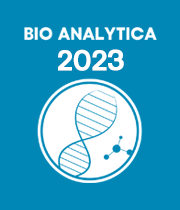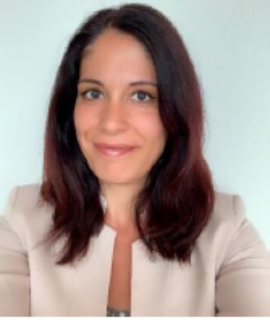Title: Bioanalytical tools for diagnosis of infectious diseases: Digital PCR as a powerful, calibration-free quantitative tool
Abstract:
Laboratory medicine is vital for medical diagnosis and treatment management. Clinical laboratories use different routine methods. Nevertheless, the same result for an analyte measured should be provided by any laboratory. In our group, we develop reliable, accurate and traceable measurement genome detection methods to detect and quantify pathogens (e.g., HIV-1, SARS-CoV-2, Monkeypox, MRSA) for diagnostics. Our methods are based on the droplet digital PCR (dPCR) which is a well-known technology for the absolute quantification of target nucleic acids. dPCR is based on random distribution of target nucleic molecules in many partitions equal in size. Each partition acts as an individual PCR microreactor and partitions containing amplified target sequences are detected by fluorescence. Quantitation is based on Poisson statistics. The proportion of PCR-positive partitions suffices to determine the concentration of the target sequence without the need for calibration. Advances in microfluidics enabled the current revolution of digital quantification by providing efficient partitioning methods. We regularly support diagnostic laboratories as an expert laboratory by providing value assignments obtained by dPCR as anker values for samples used in external quality assurance schemes. Our dPCR measurements are also validated in international interlaboratory comparisons with other metrology institutes. These worldwide comparisons aim at establishing quantitative measurements at the highest metrological level. Our findings indicate that dPCR could be a candidate as a primary reference measurement procedure and a powerful, calibration-free technology to identify and quantify infectious diseases. dPCR may outperform qPCR in clinical applications thanks to its robustness, accuracy, and reproducibility. In this line, dPCR could provide value assignments for calibration of qPCR experiments in diagnostic laboratories. This will improve reproducibility and harmonization of the results to support accurate diagnosis and clinical treatment decision making.
Audience take way:
- Explain how the audience will be able to use what they learn?
- dPCR is a powerful technique which can help accurate calibration of qPCR experiments in diagnostic laboratories.
- How will this help the audience in their job?
- Clinicians could get more accurate and reproducible data with our dPCR method.
- Is this research that other faculty could use to expand their research or teaching?
- Yes, digital PCR is a free calibration method which produces highly reproducible results.People using qPCR could make use of digital PCR for calibration of their in-house qPCR method for clinical diagnosis or experimental research work.
- Does this provide a practical solution to a problem that could simplify or make a designer’s job more efficient?
- dPCR method could help with calibration of qPCR widely used in diagnostic laboratories.This will help to produce more accurate and reproducible data.
- Will it improve the accuracy of a design, or provide new information to assist in a design problem?
- dPCR will improve the accuracy of measurements in the diagnostic of infectious diseases (e.g: HIV-1, Cytomegalovirus, Hepatitis).


